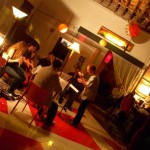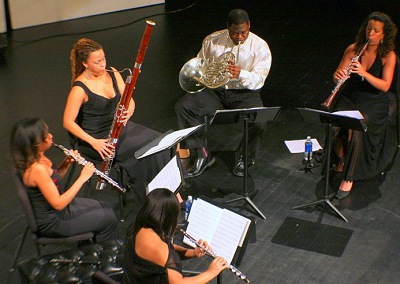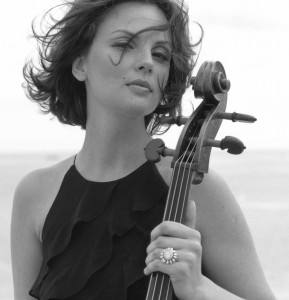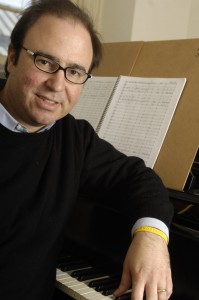 A few great concerts you might be able to catch, or might be missing:
A few great concerts you might be able to catch, or might be missing:
Carlsbad, CA: (25-27 Sept.) Sure, everybody goes here, about midway between LA and San Diego, just for Legoland California… But for the next few days, everyone should forget Legoland and instead head to the sixth annual Carlsbad Music Festival. The Calder Quartet and California EAR Unit will be playing all kinds of new music, including pieces by John Luther Adams, Daniel Wohl, Keeril Makan, Matt McBane, Ryan Brown, and Yannis Kyriakides. Premieres abound! And the weekend is given over to these ensembles supporting their special guest, guitarist extraordinaire Fred Frith. All that and a nice stretch of beach to boot! Full details on schedules, prices and directions are there on the website.
Columbia, SC: (Friday, 02 October at 7:30PM, the Univ. of SC School of Music Recital Hall, 813 Assembly Street, Columbia, SC) The award-winning Southern Exposure New Music Series presents a performance (and world premiere) by the dynamic ensemble Real Quiet. Composed of percussionist David Cossin, cellist Felix Fan, and pianist Andrew Russo, Real Quiet is dedicated to hard-edge acoustic and electric music that often blurs the borders between genres.
The concert will feature the music of Marc Mellits, with the composer in attendance. Also on the bill are the world premiere of Jacob ter Veldhuis’ Things Like That, a work that weaves together both live performance and fragments of recordings by jazz legend Anita O’Day); Annie Gosfield’s Wild Pitch, inspired by the 2004 World Series; Phil Kline’s Last Buffalo, a tribute to Hunter S. Thompson; and Lou Harrison’s Varied Trio, a piece influenced by music from Indonesia, India, and the European pre-Baroque.
United Kingdom: (25 Sept- 12 Oct) Guitarist Simon Thacker and his group The Nava Rasa Ensemble (Carnatic violin virtuoso Jyotsna Srikanth, Birmingham-based tabla master Sarvar Sabri, Scotland’s string quartet the Edinburgh Quartet, Brazilian bassist Mario Caribé and multi-percussionist Iain Sandilands) will be touring their concert titled “Inner Octaves”. Their website will give you full information on all the dates, times and venues.
The concert includes Terry Riley (b.1935, USA): Cantos Desiertos (1996); Tabla solo by Mr. Sabri; Nigel Osborne (b.1948, UK): Chamber concerto, (new commission); Tan Dun (b.1957, China): Eight Colors for string quartet (1988); Shirish Korde (b.1945, India/Uganda): Chamber concerto (new commission).
Providence, RI: (24 Sept- 11 Oct) Rhode Island’s FirstWorks Festival hosts Pixilerations [v.6], a series of new media arts installations, concert performances and film/video screenings. This Friday and Saturday there are two free concerts in the URI Shepard Auditorium (80 Washington St.): Friday at 8PM Matthew Peters-Warne plays a gourd-based digital controller to transform Portuguese and Umbundu languages into music; Todd Winkler makes an immersive audio/video environment, Kristen Volness has a piece for laptop and string quartet; Peter Bussigel creates a “shivers-inducing audio journey”; Alex Dupuis works the guitar and electronics; bedtime stories (with video) from Lucky Leone; Alex Kruckman in an audio-visual feedback loop; and Ed Osborn creates an “audio microworld” with live electronics and table-top guitar. Then on Saturday, also at 8pm, “In elements/response Aesthetic Evidence explores 600 spoken human voices through audio, visual and traditional percussion. The intersections continue with: computer-as-instrument with traditional Chinese string instrument (Jing Wang), percussionists with robots (David Bithell), and vocalist with computer musician (Christie Lee Gibson and Arvid Tomayko-Peters). Also performing equally mysterious work: asynchronous stochastic cloud structures from Shane Turner in Crash Test.” There’s plenty more good (including Pauline Oliveros next week), so give the website a good look.
Eganville, Ontario: Those of you tired with the same old venues could do worse on Saturday the 26th, than strike out from Ottawa and find the Bonnechere Caves. Deep inside, at 5PM and again at 7PM, Katelyn Clark and Xenia Pestova will provide their consummate playing on toy pianos while Toronto composer Erik Ross provides the electroacoustic soundscape.
 I thought it might be nice to close out the month of interviews from Chicago by featuring a couple musicians from dal niente. The ensemble has some great concerts planned for October, but I caught violinist Austin Wulliman and flutist Shanna Gutierrez back in June.
I thought it might be nice to close out the month of interviews from Chicago by featuring a couple musicians from dal niente. The ensemble has some great concerts planned for October, but I caught violinist Austin Wulliman and flutist Shanna Gutierrez back in June.
 But just now the latest offering is stellar jazz vibraphonist
But just now the latest offering is stellar jazz vibraphonist  Received a blurb from the LA Phil the other day, which in all caps proudly declares “LA PHIL LAUNCHES MICROSITE CELEBRATING INCOMING MUSIC DIRECTOR GUSTAVO DUDAMEL” … Kaboom!… Here’s the relevant bit (my bolds):
Received a blurb from the LA Phil the other day, which in all caps proudly declares “LA PHIL LAUNCHES MICROSITE CELEBRATING INCOMING MUSIC DIRECTOR GUSTAVO DUDAMEL” … Kaboom!… Here’s the relevant bit (my bolds): A few great concerts you might be able to catch, or might be missing:
A few great concerts you might be able to catch, or might be missing: Nina Kotova premieres a new work by Christopher Theofanidis this weekend in Dallas. In the second part of looking at the new work, I spoke with the soloist about the piece, and learned more about how the piece came into being. Listen to our conversation:
Nina Kotova premieres a new work by Christopher Theofanidis this weekend in Dallas. In the second part of looking at the new work, I spoke with the soloist about the piece, and learned more about how the piece came into being. Listen to our conversation: Our New York based readers may want to check out the opening concert of
Our New York based readers may want to check out the opening concert of 
 Wasn’t it just a couple weeks ago we were
Wasn’t it just a couple weeks ago we were